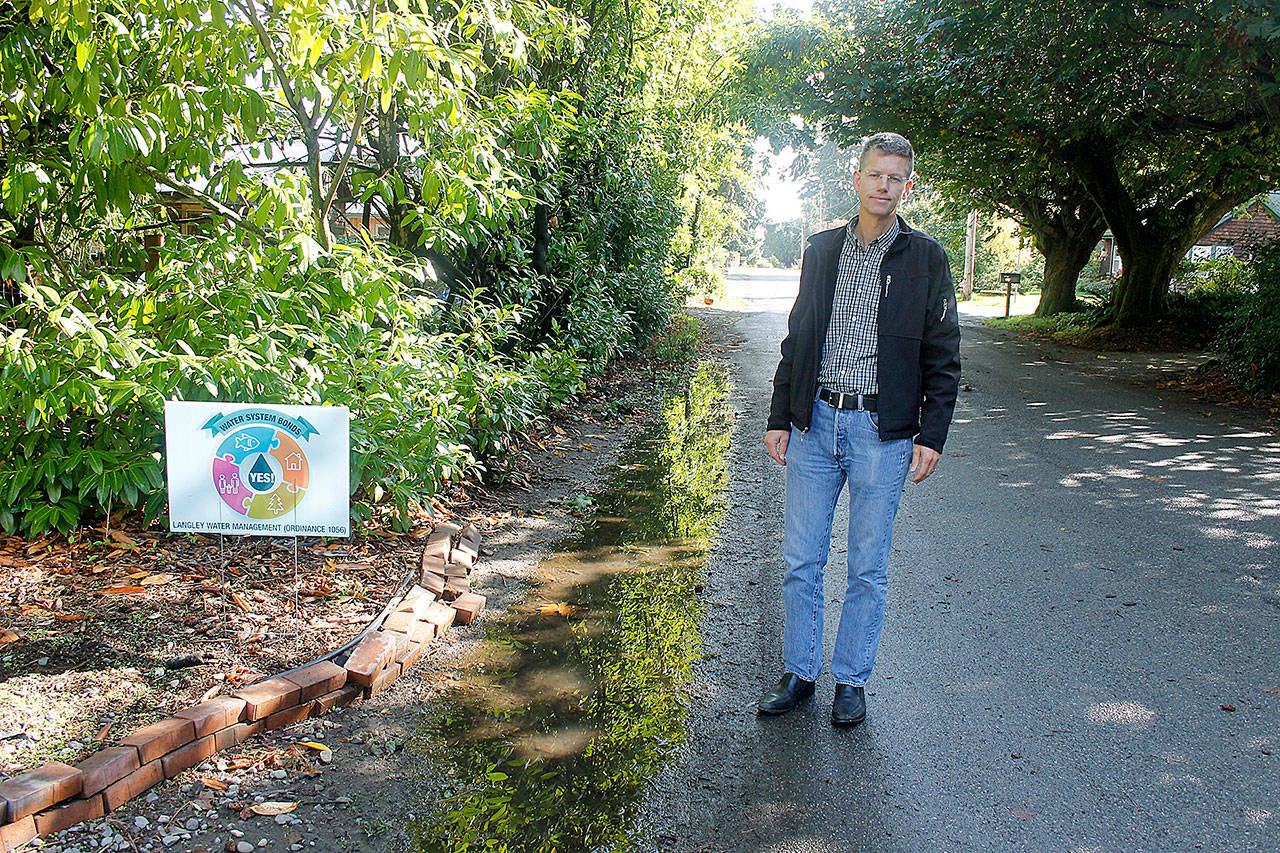An ambitious plan to install, repair and replace water, sewer and stormwater lines in the city of Langley may not be just a pipe dream.
Voters will decide on election day whether to approve a proposition to issue $4 million in general obligation bonds for wide-ranging improvements to the city’s water-management system, which in places is deteriorating or nonexistent. It would increase property taxes by an estimated 58 cents per $1,000 of assessed value, or $19.33 per month for a $400,000 home.
The measure needs 60 percent of the vote to pass.
If it is approved, Island County will kick in another $3 million in Rural Counties Economic Development funds toward the effort.
Many people in Langley have strong feelings and a list of arguments both for and against the measure.
Jim Dobberfuhl is leading The Committee for Yes, which is trying to educate residents about the proposal and convince them to vote for it. He and his family live in the aptly named Edgecliff neighborhood, where homes are on septic systems, stormwater runoff contributes to eroding bluffs and water pipes are made from concrete and asbestos.
Dobberfuhl entered into the discussion with other residents of East Langley who were skeptical when the city proposed infrastructure projects in the area two years ago. Residents questioned the costs, wondered who would pay for it, worried that they would be forced to hook into the sewage treatment system and predicted it could lead to high-density development.
After attending a rancorous meeting on the issue, Dobberfuhl was invited to serve on a city sub-committee as a liaison between city government and the neighborhood.
After a year of negotiating, the committee came up with “a very reasonable solution,” he said.
“Everybody gets what they need,” Dobberfuhl said. “They don’t necessarily get what they want.”
Under the proposition, the $3 million grant from the county will fund the installation of sewer and stormwater infrastructure in East Langley. The $4 million bond will fund upgrades to deteriorating water-related utilities in other areas of the city, where emergency fixes have become common place and the portion of water lost from leaks and breaks can reach more than 50 percent.
Residents of homes on septic systems won’t have to hook into the sewer lines unless there’s a septic failure, construction that increases the size of a residence by more than 50 percent or a sale. In addition, the city identified a dozen projects throughout the city.
Still, some residents aren’t pleased with the proposition.
Barb Seitle, also an Edgecliff neighborhood resident, is in a group that wrote the opposition statement for the voters guide. The main arguments, she said, are that the measure is not well planned, too expensive, unnecessary and an attempt to encourage development that many people don’t want.
Seitle said plans for the projects are vague and haven’t been designed, which would be the city’s first step if the measure passes. She said the “guesstimated” costs may escalate.
“Why can’t they do the engineering design and give us a real estimate,” she asked, “not this pie-in-the-sky guesswork?”
A $4-million debt is too big for the small city, she said, and low-income people and those on a fixed income can’t afford a tax increase.
It’s also not fair, she said, that those who get no benefit from the work still have to pay. The project will extend sewage and stormwater lines to 100 of the 150 homes currently on septic in East Langley.
In addition, Seitle said the real impetus for the proposed work is more about spurring development than fixing pipes.
Mayor Tim Callison said it’s true that the infrastructure improvements would help development along, which isn’t a bad thing. He points out that the state Growth Management Act dictates that development be focused within cities. More homes will be good for the economy and may help with the affordable housing shortage, he said.
The measure also makes good financial sense, he added..
The city will save money, he said, if the different systems are fixed, replaced or installed at the same time, as opposed to the current practice of responding to emergencies and digging up streets to fix one thing at a time. The measure should also stabilize rates.
“It’s never going to be any cheaper to do the project than it is today,” he said, pointing to the low interest rates, good economy and ever-escalating costs of construction.



